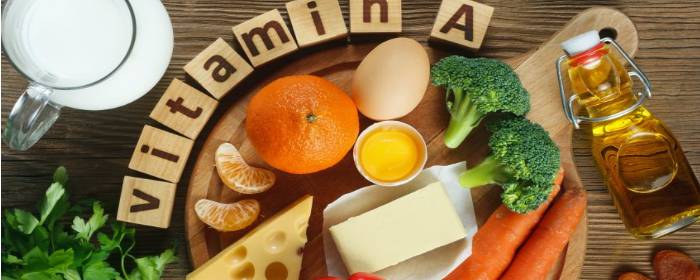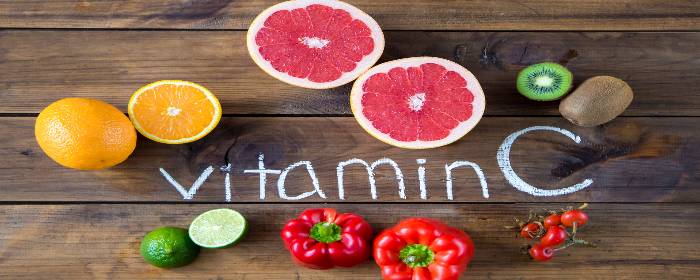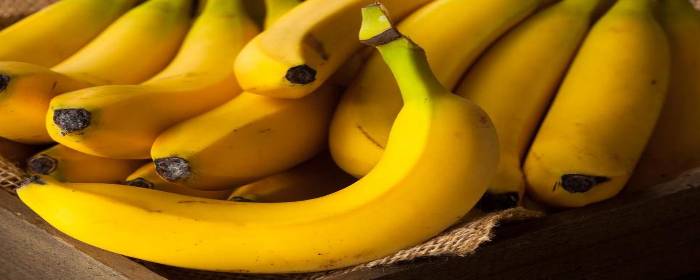
by admin | Apr 1, 2019 | Health Awareness
Gut flora has been established as an important player in keeping us healthy. This microbiome comprises more than 1,000 different species of bacteria consisting of at least 3 million genes. In addition to aiding in digestion, gut bacteria also contribute to the production of key vitamins needed for optimal immune function. But how exactly does the interplay of these agents – immunity, gut flora, and vitamins – determine how well we’re able to defend against illness? Let’s take a look.
The Microbiome & Immunity
The complex relationship between intestinal bacteria and immunity has puzzled scientists for quite some time. Generally, it is believed that the intestines and the bacteria that colonize them work together to control the body’s response to disease. But the precise mechanisms have remained unclear; specifically, scientists have wondered how our immune system allows bacteria to thrive in the intestines without attacking it. Emerging evidence suggests this is precisely where vitamin A comes in.
Vitamin A for Immune Response
Recent Brown University research suggests that moderate vitamin A levels within the intestines control immune response, preventing it from overacting. These findings could hold significant value for people suffering from autoimmune conditions, including Crohn’s disease.
In their studies, researchers discovered that gut bacteria adjust a protein that activates vitamin A in the gastrointestinal tract to regulate the host’s immune responses. While further research is still needed, these findings may hold answers to what will ultimately help control or cure certain chronic illnesses in the future. Because many of these diseases are linked to increased immune response, this discovery of the gut bacteria’s ability to suppress immune response is enlightening.
As of now, the role of vitamin A in inflammation continues to be puzzling, but in the future, scientists aim to explore why suppressing proteins that activate vitamin A is important in regulating the immune response. It’s clear that changing vitamin A levels somehow relates to inflammatory bowel conditions, which suggests that both diet and existing gut bacteria are linked to the behavior of immune cells.
In the meantime, if you’re suffering from an autoimmune condition, discussing supplements with your doctor could be a good place to start. While maintaining healthy eating habits is one powerful way to maximize your nutrient intake, the modern diet often leaves nutritional gaps. Sweet potatoes, spinach, carrots, and broccoli are all rich in vitamin A, but if you’re concerned about your levels, supplements could help you compensate for any nutritional shortcomings.

by admin | Feb 28, 2019 | Health Awareness
We’re told since childhood that we need vitamins to stay strong, but just how significant a role does each nutrient really play in our wellness? Specifically, you may have heard about the importance of getting ample vitamin C to fight off illness, but what does it really do to keep us healthy? Let’s take a closer look at the significance of vitamin C, and how you can make sure you’re getting enough.
Why Our Health Depends on Vitamin C
Vitamin C supports a number of key bodily functions. It helps to produce L-carnitine and some neurotransmitters, and it also has antioxidant activity which could help to decrease the risk of certain cancers. It also aids in iron absorption.
Moreover, vitamin C plays an important role in collagen production. Collagen is found in connective tissue and is the most abundant protein found in mammals. It makes up tendons, ligaments, cartilage, skin, bones, blood vessels, and more. Without enough vitamin C, collagen production may become compromised. This means wounds may take longer to heal, as research shows vitamin C can help form scar tissue.
Researchers have also found that vitamin C can attack drug-resistant strains of tuberculosis and that in general, people with sufficient levels of the vitamin may be more likely to fight off infections than those without. Additionally, individuals who contract colds and have enough of the nutrient may experience shorter periods of illness and milder symptoms. High doses have even been proven to benefit cancer patients by stopping the growth and potentially even killing off cancer cells.
Without enough vitamin C, you may notice symptoms of a deficiency, including nosebleeds, a slowed metabolism, weakened tooth enamel, painful joints, bleeding gums, anemia, easy bruising, and dry or splitting hair. A severe deficiency is known as scurvy, but this condition is typically experienced only by malnourished, older adults.
How to Get Plenty of Vitamin C
Vitamins can either be fat soluble or water soluble. Vitamin C falls into the latter category, which means it isn’t stored by the body, and any excess amount will be released through urine. Because we don’t build up a supply of it, it’s critically important that we get enough through diet.
The daily recommended amount for vitamin C is 65 to 90 mg for adults, but these levels may be different for women who are pregnant or breastfeeding. To take in more vitamin C through your diet, snack on fruits like cantaloupe, pineapple, strawberries, citrus fruits, and watermelon. Veggies like broccoli, Brussels sprouts, cauliflower, peppers, spinach, and sweet potatoes are also rich in the nutrient. If you’re concerned about your intake, consider speaking with your doctor to determine whether you might be a good candidate for a daily supplement.

by admin | Jan 31, 2019 | Health Awareness
Potassium is a mineral which plays many important roles in the body. It supports both cellular and electrical function, and is one of the blood minerals called an electrolyte, meaning that it carries a small electrical charge. The body uses this electricity to manage processes such as fluid balance, muscle contractions, and nerve signals. Thus, when your body has too much or too little potassium, it can alter many critical functions.
According to research, a potassium-rich diet can reduce blood pressure
and water retention. It may also prevent stroke, osteoporosis, and
kidney stones. In addition to keeping these conditions at bay, having optimal
potassium levels also supports your overall wellbeing. When potassium levels
dip too low, a condition called hypokalemia
can set in. It’s characterized by muscular cramping or weakness, depression,
insomnia, and cardiovascular complications, including abnormal heart rhythm.
With that said, it’s also possible to get too much potassium, which is why most
medical experts agree that getting the mineral through diet is the safest way
to maintain optimal levels.
Unless you have a known kidney disorder or another condition
which would cause you to limit your potassium consumption, you can aim for up
to 4,700
milligrams per day of the mineral. Below, we’ve compiled a list of
potassium-rich foods to start incorporating into your diet.
7 Foods High in Potassium
Beet Greens: When cooked, a 100-gram serving of beet greens has over 900 mg of potassium! When they’re in season (June through October), try sautéed beets with a little garlic and olive oil.
White Potatoes: Oftentimes, starchy foods like white potatoes get a bad reputation. In reality, white potatoes are high in nutrients, and 3.5 ounces of baked white potatoes contain 544 mg of potassium.
Pinto Beans: Versatile pinto beans can be added to chili, served as a side dish, or incorporated into salads and burritos. And, with nearly 650 mg, they pack a powerful punch of potassium.
Greens: There’s a reason kale is hailed as a superfood. As one of the most nutrient-dense but low-calorie foods on the planet, it is an excellent source of vitamins C and K, antioxidants, and has nearly 450 mg of potassium. Spinach, too, is a strong contender, and a 100-gram serving has 466 mg of the mineral when cooked.
Salmon: Fish like wild salmon and halibut are loaded with potassium, and most will satisfy upwards of 10% of your daily recommended intake. They’re also rich in vitamin D and omega-3 fatty acids.
Avocado: Another superfood, avocados are packed with fiber, heart-healthy fatty acids, and potassium. A single serving meets 14% of your daily recommended value for potassium, too.
Bananas: The yellow fruit has rightfully earned its longstanding reputation as a potassium-rich food. Yet, with roughly 350 mg per serving, all of the other foods on this list actually contain more potassium than bananas!




 St. Petersburg, Florida
St. Petersburg, Florida
